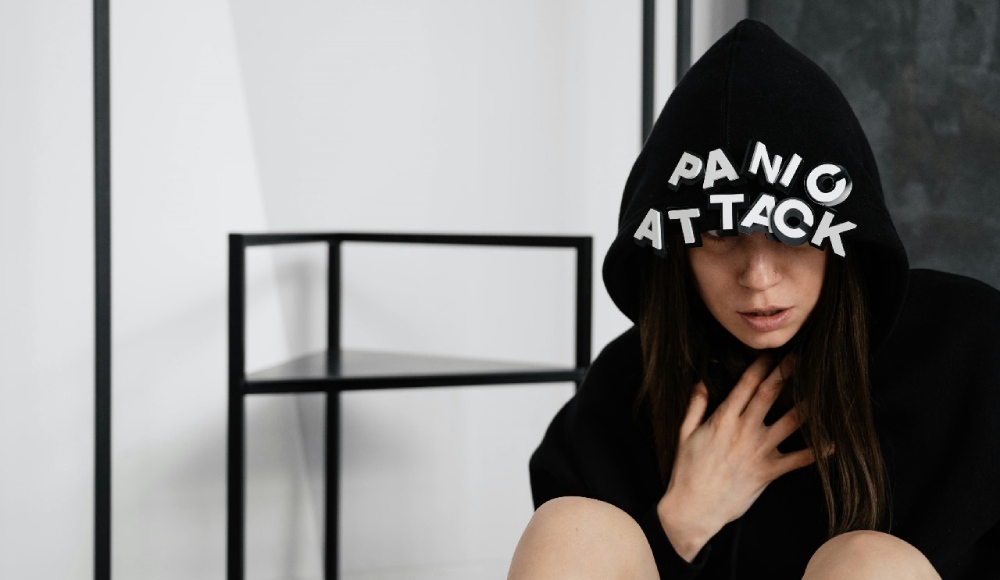Imagine suddenly feeling an overwhelming wave of fear for no clear reason — your heart races, your chest tightens, your breath shortens, and you feel dizzy or disconnected from reality. If this sounds familiar, you might have experienced a panic attack.
But what is a panic attack, really? Is it dangerous? Why does it happen? And most importantly, how to prevent panic attacks from taking over your life?
In this blog, we break down the symptoms, causes, and prevention of panic attacks. Whether you’re personally dealing with panic symptoms or supporting someone who is, understanding these episodes is the first step to managing them.
Also find information on Irrationation Fears
What Is a Panic Attack?
A panic attack is a sudden surge of intense fear or discomfort that peaks within minutes. It can occur unexpectedly, without any apparent trigger, or can be linked to a specific fear or stressor.
People often describe it as feeling like they’re losing control, having a heart attack, or dying — even though, medically, these episodes are not life-threatening. That said, the distress they cause is very real and can significantly affect your quality of life.
What Are the Symptoms of a Panic Attack?
Panic attacks affect both the body and the mind. These are some of the common panic attack symptoms in adults
Physical symptoms
- Rapid heartbeat or palpitations
- Sweating
- Trembling or shaking
- Shortness of breath or a feeling of choking
- Chest pain or discomfort
- Nausea or abdominal distress
- Dizziness or lightheadedness
- Chills or hot flashes
Psychological symptoms
- Feeling detached from reality (derealization) or from oneself (depersonalization)
- Fear of losing control
- Fear of dying
- A sense of impending doom
Each attack usually lasts between 5 to 20 minutes, though some people might feel drained or anxious for hours afterward.
Get in touch with best psychologists in India
Panic Attack Causes and Symptoms
Understanding panic attack causes and symptoms can help identify patterns and plan for treatment. While the exact cause may vary from person to person, common contributors include
- Stress and Anxiety
Chronic stress is one of the biggest triggers. Work pressure, family issues, or financial stress can accumulate and cause panic attacks over time. - Genetics
If someone in your family experiences panic attacks or anxiety disorders, you may be more prone to developing them too. - Personality Traits
Individuals who are more sensitive to stress or tend to avoid difficult situations may be more susceptible. - Trauma or Major Life Changes
Past traumatic experiences or sudden changes like job loss, divorce, or a serious illness can increase your risk. - Medical Conditions
Certain conditions like thyroid problems, heart issues, or stimulant use (e.g., caffeine, drugs) can mimic or trigger panic symptoms.
What Causes Panic Attacks Suddenly?
Sometimes, panic attacks seem to come “out of the blue.” These unexplained episodes are often referred to as unexpected panic attacks. However, they may still be rooted in subconscious fears or physiological responses.
For example, if you’ve had a panic attack in a particular place before, just being in that setting again — even if you’re not aware of the connection — could trigger another.
Does Panic Attack Cause Death?
A very common concern is: “Does panic attack cause death?”
The short answer is no, panic attacks do not cause death directly. However, the intense physical sensations can feel life-threatening, especially if you’re experiencing chest pain or shortness of breath for the first time.
That said, frequent and unmanaged panic attacks can affect your long-term health by increasing stress hormone levels, disrupting sleep, and lowering overall immunity. It’s essential to take them seriously and seek support early.
How to Prevent Panic Attacks
While panic attacks are unpredictable, there are effective strategies to reduce their frequency and intensity. Here’s how to prevent panic attacks
- Practice Deep Breathing
Controlled breathing techniques can counteract the rapid breathing that often fuels panic attacks. Try inhaling slowly through your nose for 4 counts, holding for 4, and exhaling through your mouth for 6 counts. - Limit Caffeine and Alcohol
Both substances can heighten anxiety and make you more vulnerable to panic attacks. - Stay Active
Regular exercise, especially cardio, can help release endorphins — the brain’s natural stress relievers. - Build a Daily Routine
Sleep well, eat balanced meals, and maintain a schedule. Predictability can provide a sense of control and calmness. - Cognitive Behavioral Therapy (CBT)
CBT is a proven approach for managing panic disorders. It helps you identify and challenge irrational thoughts and gradually desensitize yourself to anxiety triggers. - Work With a Professional
Online mental health support has made it easier than ever to connect with therapists. If you’re not sure where to begin, consider speaking with an Indian therapist online who understands cultural nuances and can guide you through tailored coping strategies.
When to Seek Help
If your panic attacks are frequent, intense, or interfering with your everyday life, it’s time to seek professional help. A licensed mental health expert can help diagnose if you’re dealing with panic disorder and suggest appropriate treatment options.
You may also want to explore support from an Indian famous psychologist if you prefer someone with recognized expertise and credibility in anxiety and trauma-related issues.
Final Thoughts
Understanding what is a panic attack, what causes panic attacks, and how to prevent panic attacks can empower you to manage your mental health better. Although panic attacks can be overwhelming, they are treatable with the right combination of self-care, therapy, and lifestyle changes.
You’re not alone. Whether you’re seeking clarity, support, or recovery — help is available, and healing is possible.


